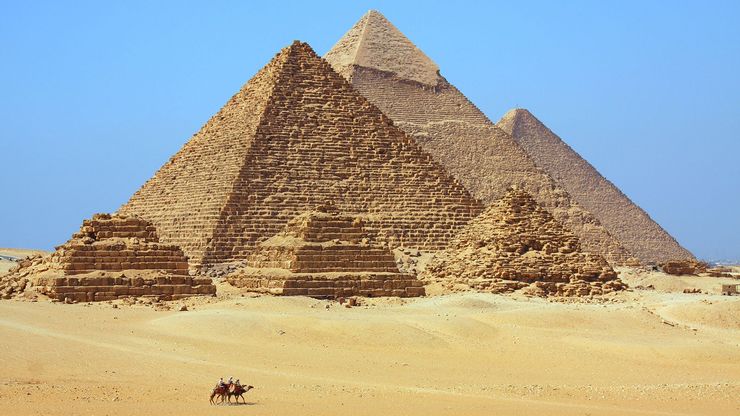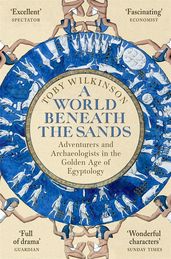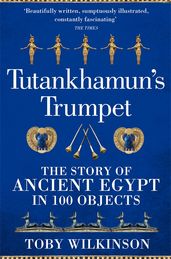Three female pioneers of Egyptology that history forgot
The vital contribution of these remarkable pioneering women to our understanding of ancient Egypt should not be underestimated, writes Toby Wilkinson.

Visiting the harems of Cairo, living atop an Egyptian temple and getting shot at in the desert were not the usual exploits of a woman in the nineteenth and early twentieth centuries. But Sophia Lane Pool, Lucie Duff Gordon and Hilda Petrie were three remarkable women who broke free of the gender constraints of their times to make invaluable contributions to our understanding of the Nile Valley and the Egyptian people. Here, Toby Wilkinson, acclaimed Egyptologist and prize-winning author, tells us more about their fascinating stories.
From the death of Cleopatra in 30 BC until the early nineteenth century AD, the history of Egypt, and of Western encounters with the country, was written exclusively by men. When the Romans conquered the Nile Valley, they brought with them their social attitudes and their highly gendered culture, and the lot of women took an immediate turn for the worse.
Sixteen centuries later, Europeans began to show an interest in the cultures of the ancient world but, as befitted a hobby that mixed the derring-do of foreign travel with dilettantish debates in London clubs, these antiquarians – and their successors, the early anthropologists and archaeologists – were all men. The history of Egyptology is dominated by the discipline’s founding fathers, while accounts of pioneering women are as rare as an intact tomb in the Valley of the Kings.
But, look hard enough and a few remarkable individuals do emerge from the shadows. The first of these forgotten female pioneers is
Sophia Lane Poole
Sophia Lane Poole (1804–1891) was born into an educated, middle-class family, but little is known about her life beyond two decisive events: her marriage in 1829, and her sojourn in Egypt with her brother, Edward Lane, in the 1840s. The first was what society expected of any self-respecting young woman in Regency England; the second was highly unusual for the time. Sophia’s brother Edward was a leading scholar of Arabic language and culture. The product of two earlier visits to Egypt was his landmark work, Manners and Customs of the Modern Egyptians. When he returned to Egypt a third time, in 1842, with his sister, wife and two nephews for company, it was to gather material for his magnum opus, An Arabic–English Lexicon.
While Edward pored over Arabic manuscripts in the mosques and madrassas of Cairo, Sophia carried out her own research, visiting the city’s harems to observe first-hand the lives of Egyptian women. Like her brother, she was a dispassionate and objective scholar, not bound by the prejudices of many of her contemporaries. She recorded the everyday cruelties suffered by wives, children and slaves, but also the maternal tenderness she witnessed. Her observations of Egyptian women were both nuanced and balanced. The resulting two-volume book, The Englishwoman in Egypt (1851), is every bit as remarkable as her brother’s work, yet it is little known today. In a sign of the times in which she was writing, even Sophia’s name is missing from the title page, which carries the following description: ‘Letters from Cairo written during a residence there in 1842, 3, & 4, with E.W. Lane, Esq. Author of the ‘Modern Egyptians’.By his sister’.
Lucie Duff Gordon
A decade-and-a-half after the publication of Sophia Lane Poole’s book, another series of letters from Egypt, showing a similar sensitivity to their subject, was published to great acclaim. This time, however, their author, Lucie Duff Gordon (1821–1869), was able to claim full credit. Where Sophia had demonstrated the self-effacing respectability expected of her class, Lucie, with her radical upbringing, literary connections and aristocratic relatives, was more comfortable breaking the rules. In 1862, suffering from tuberculosis, she travelled to Egypt for its warm, dry climate. Apart from one brief visit back to London, she stayed in the Nile Valley for the next seven years, residing for much of the time in a ramshackle house on the roof of Luxor Temple.
But Lucie was uninterested in ruins: for her, the most pressing matter was the benighted situation of the ordinary Egyptian people. Her clear-sightedness and openness to other cultures made her an unusually sharp observer of colonial attitudes. In her letters home, she was equally scathing about Egypt’s corrupt rulers, putting her life in danger from the regime’s spies and henchmen. When her correspondence was published, as Letters from Egypt (1865), Lucie became something of a celebrity, sought out by Nile tourists (including the Prince and Princess of Wales). But her health continued to worsen and, in 1869, she died in Cairo, her faithful Egyptian servant at her side. As The Times' obituary noted, ‘Lady Duff Gordon lived in Egypt, and in Egypt she has died, leaving a memory of her greatness and goodness such as no other European woman ever acquired in that country.'
Hilda Petrie
Our third female pioneer, whom history has almost completely ignored, was Hilda Petrie (1871–1956). While her husband, Sir Flinders Petrie, is famous as the founding father of Egyptian archaeology, the role played by his long-suffering, redoubtable wife on his countless excavations is much less well-known. Not only did Hilda raise the necessary funds and assist her husband in the actual digging, she also measured and drew the artefacts they uncovered, and prepared the discoveries for publication. She produced two scholarly books of her own, Egyptian Hieroglyphs of the First and Second Dynasties (1927) and Seven Memphite Tomb Chapels (1952). But, during her husband’s lifetime, her contribution to his work went almost entirely unsung. Just about the only mention Flinders makes of Hilda in his one thousand books and articles is when relating an incident which happened on a dig: ‘a man came in the dark and shot at close range at the first person who came out of our mess-hut, which was my wife. Happily she escaped.’
Less happily, Hilda Petrie, in common with Sophia Lane Poole and Lucie Duff Gordon, has for too long escaped the historian’s pen. As we look forward to the bicentenary of the decipherment of hieroglyphics and the centenary of the discovery of Tutankhamun’s tomb, it is time to recognise and celebrate Egyptology’s female pioneers.
A World Beneath the Sands
by Toby Wilkinson
The golden age of Egyptology was undoubtedly the nineteenth and early twentieth centuries, a time of scholarship and adventure which began with Champollion's decipherment of hieroglyphics in 1822 and ended with the discovery of Tutankhamun’s tomb by Howard Carter and Lord Carnarvon a hundred years later. In A World Beneath the Sands, the acclaimed Egyptologist Toby Wilkinson tells the riveting stories of the men and women whose obsession with Egypt's ancient civilisation drove them to uncover its secrets.
Tutankhamun's Trumpet
by Toby Wilkinson
It is over one hundred years since Howard Carter first peered into the newly opened tomb of ancient Egyptian boy-king, Tutankhamun. When asked if he could see anything, he replied: ‘Yes, yes, wonderful things.’ In Tutankhamun’s Trumpet, acclaimed Egyptologist Toby Wilkinson takes the objects buried with the king as the source material for a wide-ranging, detailed portrait of ancient Egypt – its geography, history, culture and legacy. One hundred artefacts from the tomb, arranged in ten thematic groups, are allowed to speak again – not only for themselves, but as witnesses of the civilization that created them.




